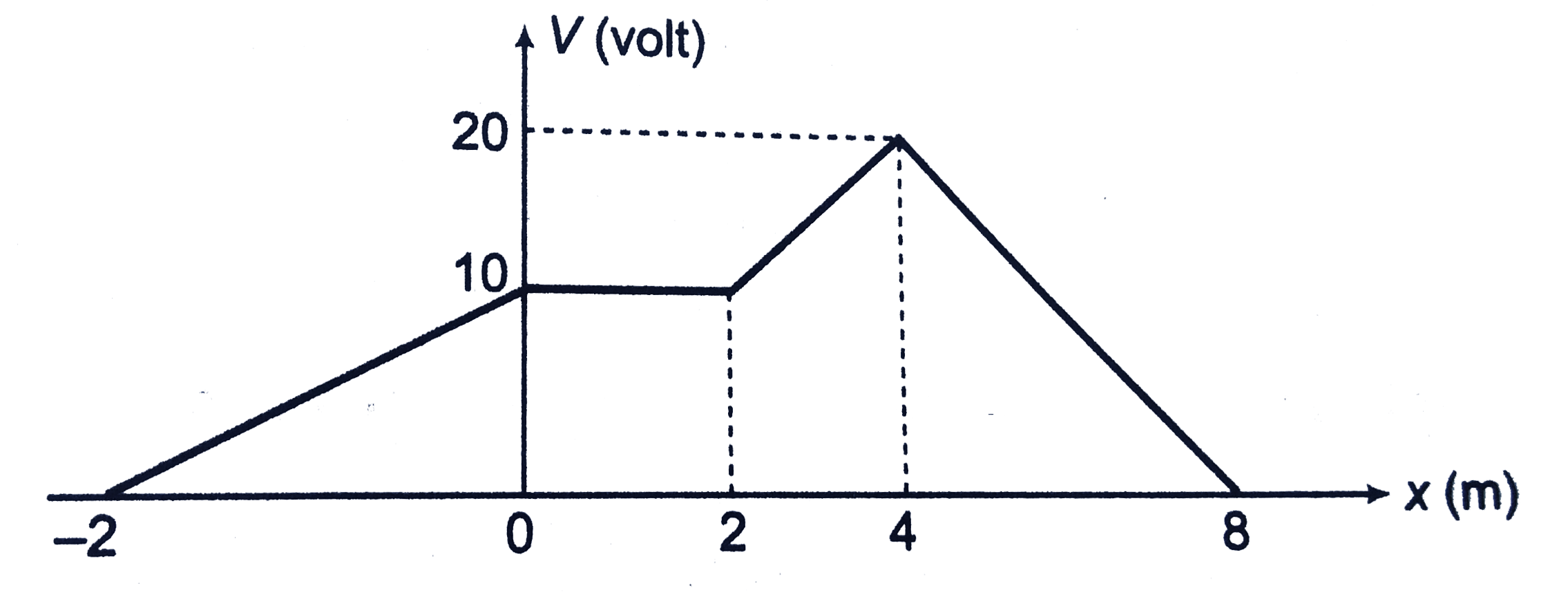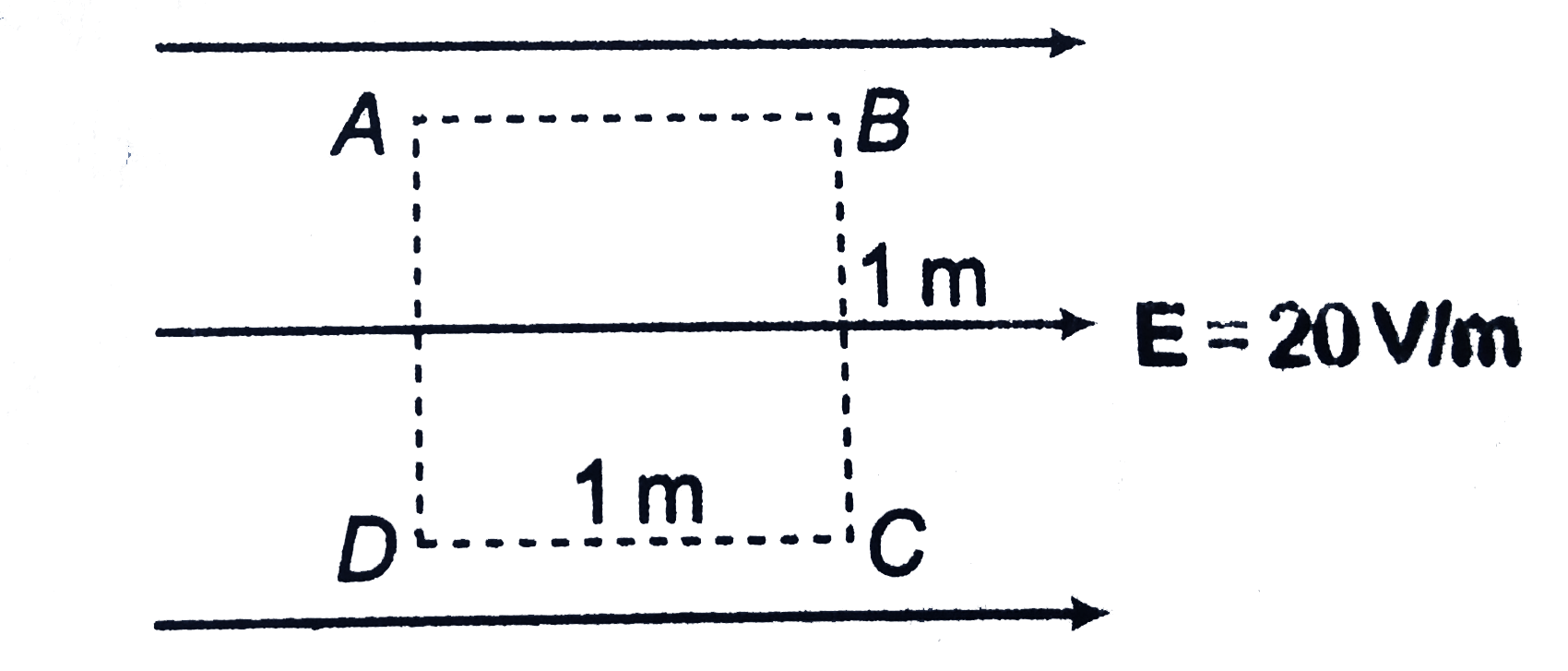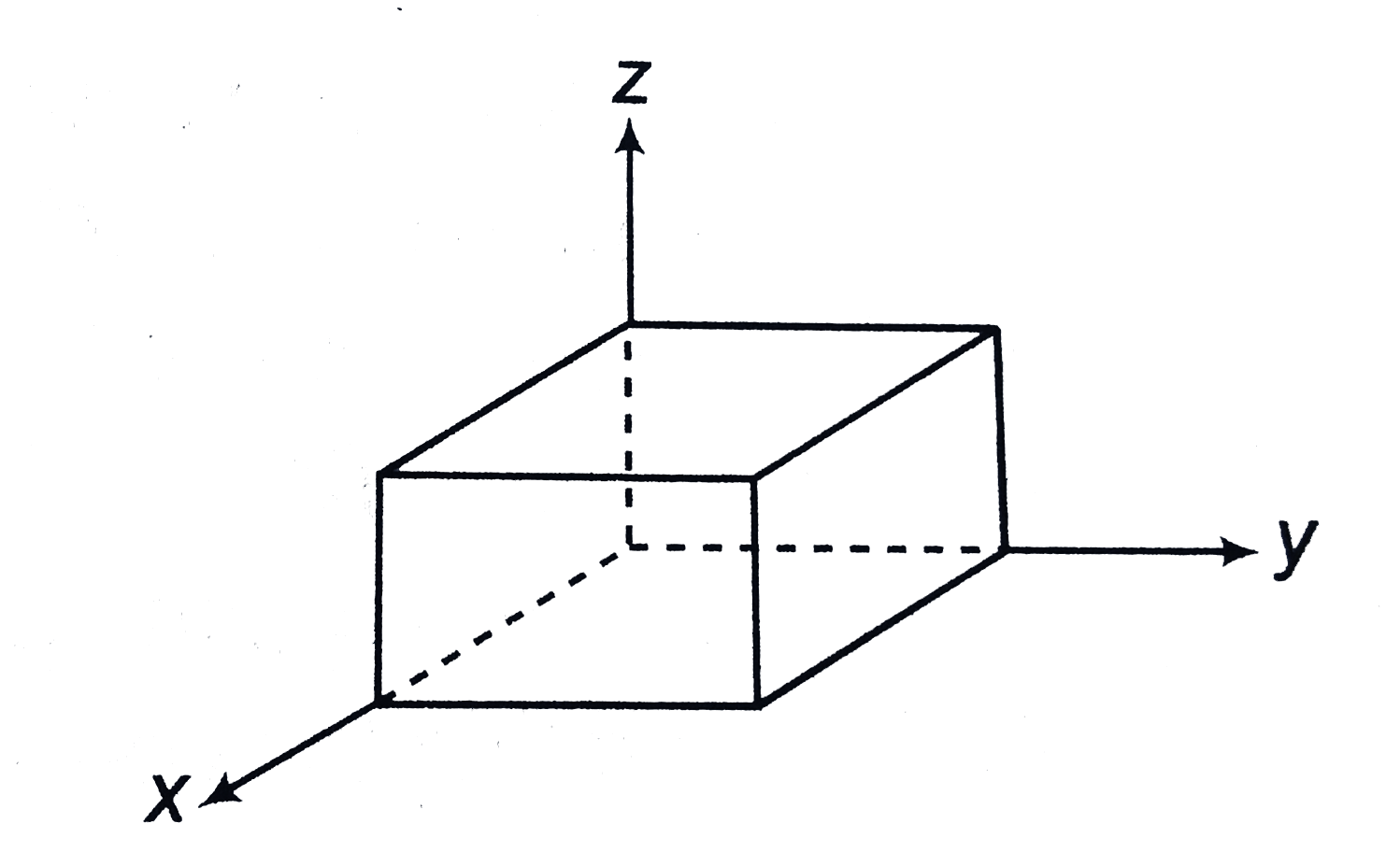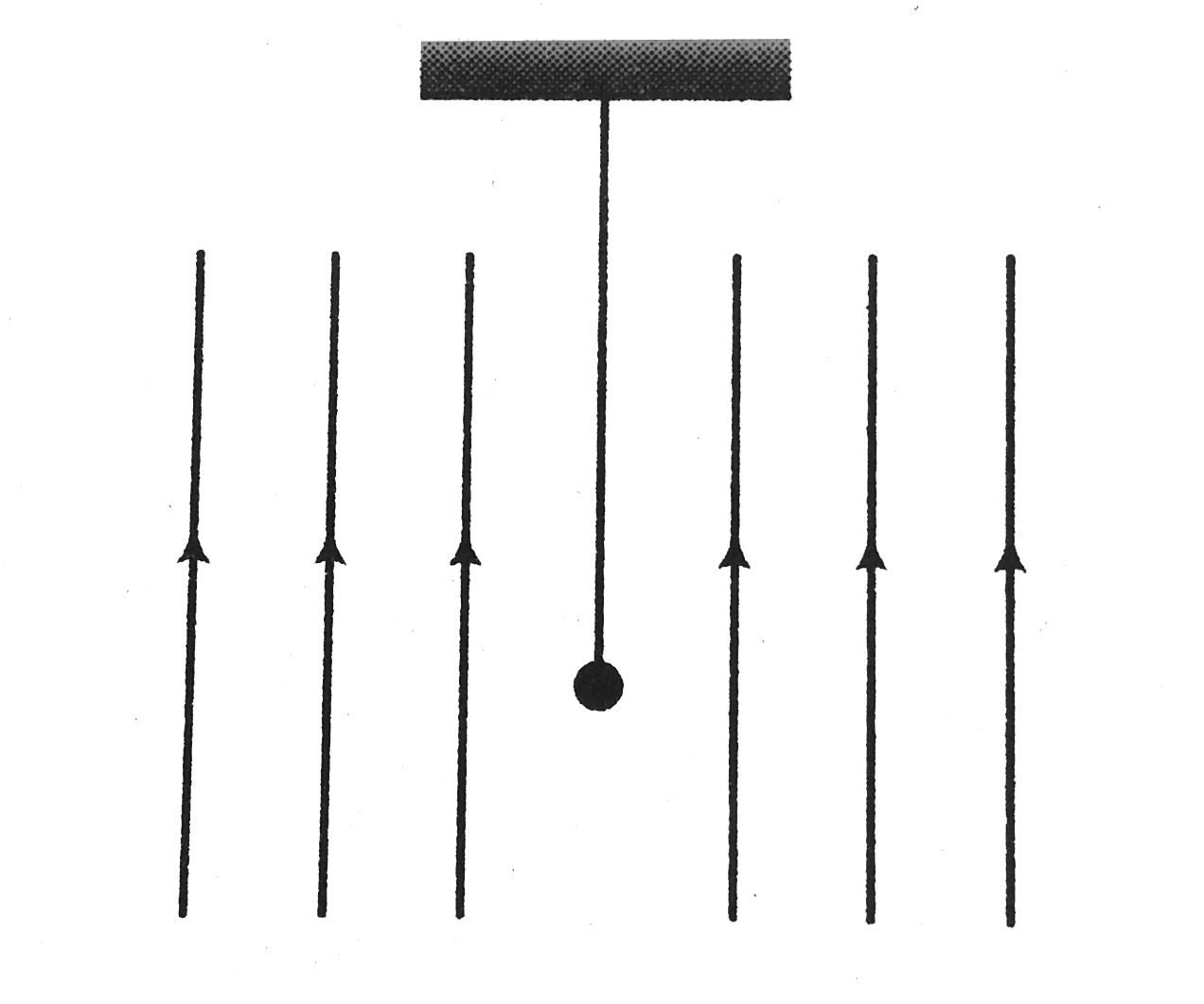Complete Solutions to Level 1 Assertion And Reason of chapter ELECTROSTATICS of Class 12 book with complete answers and questions
| Class 12 | PHYSICS |
| Chapter | ELECTROSTATICS |
| DC PANDEY | Level 1 Assertion And Reason |
| Number Of Questions | 19 |
| Academic Year | 2023-24 |
The electrical potential function for an electrical field directed parallel to the x-axis is shown in the given graph.
 Draw the graph of electric field strength.
Draw the graph of electric field strength.
View SolutionThe electric potential decreases uniformly from `100 V` to `50 V` as one moves along the x-axis from `x = 0` to `x = 5 m`. The electric field at `x = 2 m` must be equal to `10 V//m`. Is this statement true or false.
View SolutionIn the uniform electric field shown in figure, find :
a. `V_A-V_D`
b. `V_A-V_C`
c. `V_B-V_D`
d. `V_C-V_D`

View SolutionIn figure (a), a charge q is placed just outside the centre of a closed hemisphere. In figure (b), the same charge q is placed just inside the centre of the closed hemisphere and in figure (c), the charge is placed at the centre of hemisphere open from the base. Find the electric flux passing through the hemisphere in all the three cases.

View SolutionNet charge within an imaginary cube drawn in a uniform electric field is always zero. Is this statement true or false?
View SolutionA hemispherical body of radius R is placed in a uniform electric field E. What is the flux linked with the curved surface if, the field is (a) parallel to the base, (b) perpendicular to the base.
View SolutionA cube has sides of length `L = 0.2 `m. It is placed with one corner at the origin as shown in figure. The electric field is uniform and given by `E= (2.5 N//C) hati - (4.2 N//C) hatj`. Find the electric flux through the entire cube.

View SolutionAssertion: An independnt negative charge moves itself from point A to point B. then, potential at A should be less than potential at B.
Reason: While moving from A to B kinetic energy of electron will increase
View SolutionAssertion: When two unlike charges are brought nearer, their electrostatic potential energy decreases.
Reason: All conservative forces act in the direction of decreasing potential energy.
View SolutionAssertion: At a point electric potential is decreasing along x-axis at a rate of `10 V//m`. Therefore, x-component of electric field at this point should be `10 V//m` along x-axis.
Reason: Magnitude of `E_x=(delV)/(delx)`
View SolutionAssertion: Electric potential on the surface of a charged sphere of radius R is V. Then electric field at distance `r=R/2` from centre is `V/(2R)`. Charge is distributed uniformly over the volume.
Reason: From centre to surface, electric field varies linearly with r. Here r is distance from centre.
View SolutionAssertion: Gauss's theroem can be applied only for a closed surface.
Reason: Electric flux can be obtained passing from an open surface also.
View SolutionAssertion: In the electric field `E=(4eci+4hatj)N//C` electric potential at A (4m, 0) is more than the electric portential at `B(0,4m)`
Reason: Electric lines of forces always travel from higher potential to lower potential.
View SolutionAssertion: Two charges `-q` each are fixed points A and B. When a third chrge `-q` is moves from A to B, electrical potential energy first decreases than increases,

Reason: Along the line joining A and B, third charge is stable equilibrium position at centre.
View SolutionAssertion: A small electric dipole is moved translatonally from higher potential to lower potential in uniform electric field. Work done by electric is positive.
Reason: When a positive charge is moved from higher potential to lower potential, work done by electric field positive.
View SolutionAssertion: In case of charged spherical shells, E-r graph is discontinuous while V-r graph is continuous
Reason: According to Gauss's theorem only the charge inside a closed surface ca produce electric field at some point.
View SolutionAssertion: If we see along the axis of a chaged ring, the magnitudeof electric field is minimum at centre and magnitude of electridc potential is maximum.
Reason: Electric field is a vector quantity while electric potential is scalar.
View SolutionUnits of electric flux is
View SolutionA neutral pendulum oscillates in a uniform electric field as shown in figure. If a positive charge is given to the pendulum, then its time period

View Solution
Level 1 Assertion And Reason questions and complete solutions for chapter ELECTROSTATICS of DC PANDEY PHYSICS (HINGLISH) of Class 12
All Exercises from DC PANDEY Class 12 PHYSICS ELECTROSTATICS
- Assertion and Reason
- Check point 1.1
- Check point 1.2
- Check point 1.3
- Check point 1.4
- Check point 1.5
- Example
- Example Type 5
- Example Type 6
- Example Type 8
- Exercise 24.1
- Exercise 24.2
- Exercise 24.3
- Exercise 24.4
- Exercise 24.5
- Exercise 24.6
- Exercise 24.7
- Level 1 Assertion And Reason
- Level 1 Objective
- Level 1 Subjective
- Level 2 Single Correct
- Match the columns
- Medical entrances gallery
- SUBJECTIVE_TYPE
- Taking it together